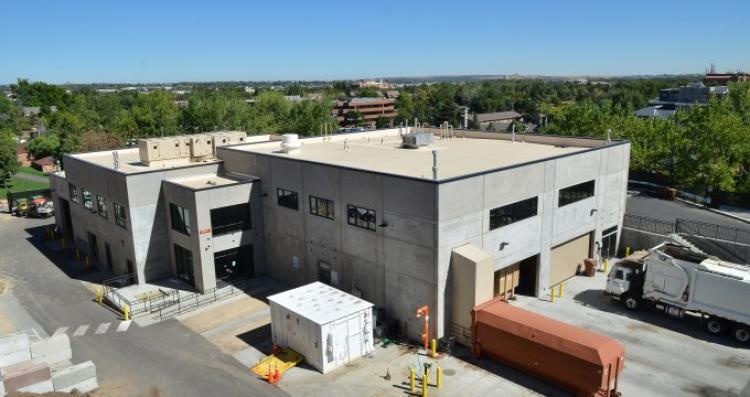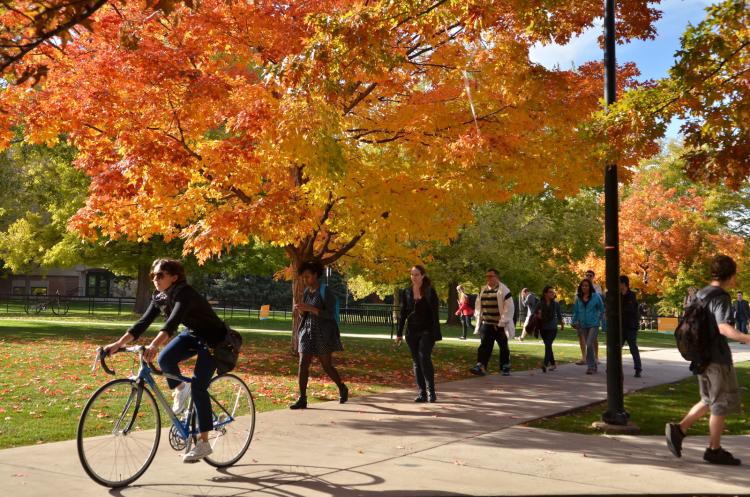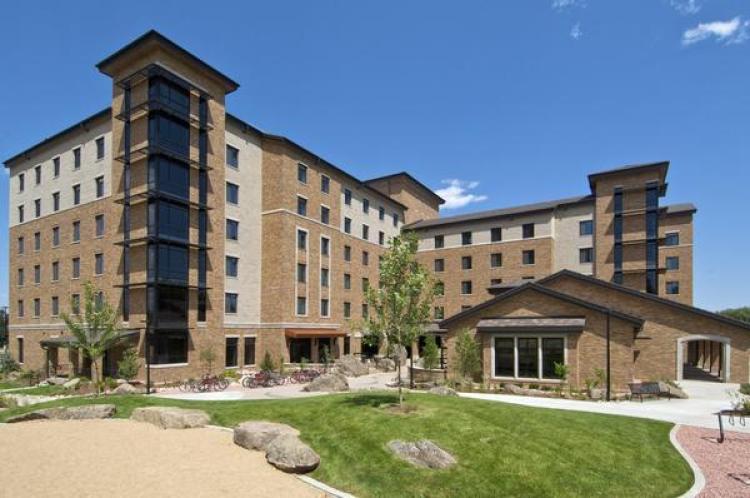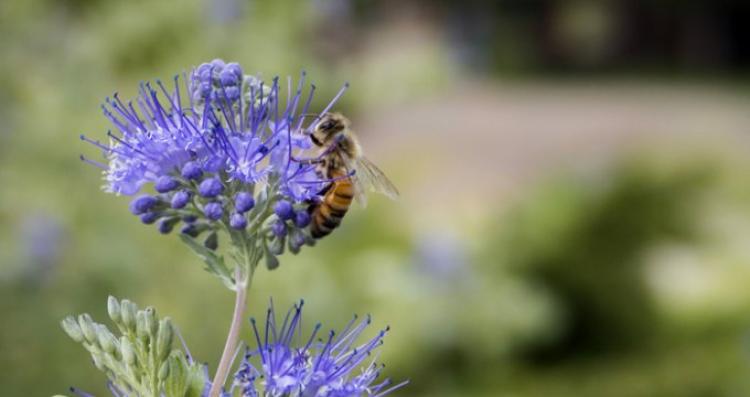Operations
CU Boulder is a living laboratory. While campus looks and feels like the greater world we live in, it is an entirely self-contained system. Quick and wide reaching actions can be made that would be impossible for a city, state or country ─ making campus a great place to test new ideas in sustainability.

Waste Diversion
Established in 1976, the mission of the University of Colorado’s Recycling Services is to cost-effectively reduce and recover resources from the waste stream, while promoting the environmental and social benefits of recycling, and providing opportunities for meaningful student involvement. Recycling is managed at CU by a partnership among student government, Housing and Dining Services and Facilities Management. Over the past 40 years, the program has exemplified responsible materials management and is now targeting a campus zero-waste goal of a 90% diversion rate by 2020.

Transporting Our People
Centrally located with access to transit, bike paths and the most walkable neighborhoods in Boulder, CU is ideally situated to optimize transportation options. Whether it is providing bus passes for all students, staff and faculty, or implementing bicycle strategies that have earned Gold Bicycle Friendly University status, the Environmental Center and Parking & Transportation Services are working to ensure accessiblity to campus that is safe, connected, neighborly and focused on reducing our impacts on the environment.
Healthy Lawns
Water, waste and ingenuity ─ these are the ingredients of compost tea. Made by mixing compost and water together, this microbe-based fertilizer drastically improves soil health while managing pests. The tea is distributed through the campus irrigation system, which proved to be a deceptively challenging process that took five years of development to get just right. The result? Since 2013 the university has been the first major institution to use compost tea on a large scale, and refrains from applying herbicides to the campus turf.

Green Buildings
Williams Village North is one of the greenest buildings on campus. As the nation’s largest LEED Platinum residence hall it uses 39 percent less energy than traditional buildings of its size; it was constructed using many recycled and locally sourced materials; it boasts a quarter-million dollar greywater system estimated to save 700,000 gallons each year once operational; and more. The hall is one of the 26 LEED-certified buildings on campus.

Protecting Biodiversity, Saving Water
Since 2014, CU Boulder has dedicated 10,000 square feet of campus to grow pollinator-friendly plants. These designated landscapes are grown to be a valuable resource for bees, butterflies and other pollinators. Because these pollinator landscapes are often xeriscapes (“dry landscaping”), special consideration was made to plant native perennials, control the soil composition and monitor irrigation practices, all of which reduce water use.
Quick Facts
Since 2005, energy use has reduced by 21% per square foot despite campus growing by 31%.
Since 2005, carbon emissions have decreased by 9%; Emissions per person have decreased by 22%
Since 2007, campus potable water usage per square foot has decreased by 19%.
The 1st major institution to implement a large-scale application of compost tea.
16% of the food purchased through Dining Services is local and community-based and/or third party verified, such as organic and Fair Trade.
83% of construction-related waste is recycled/reclaimed.

